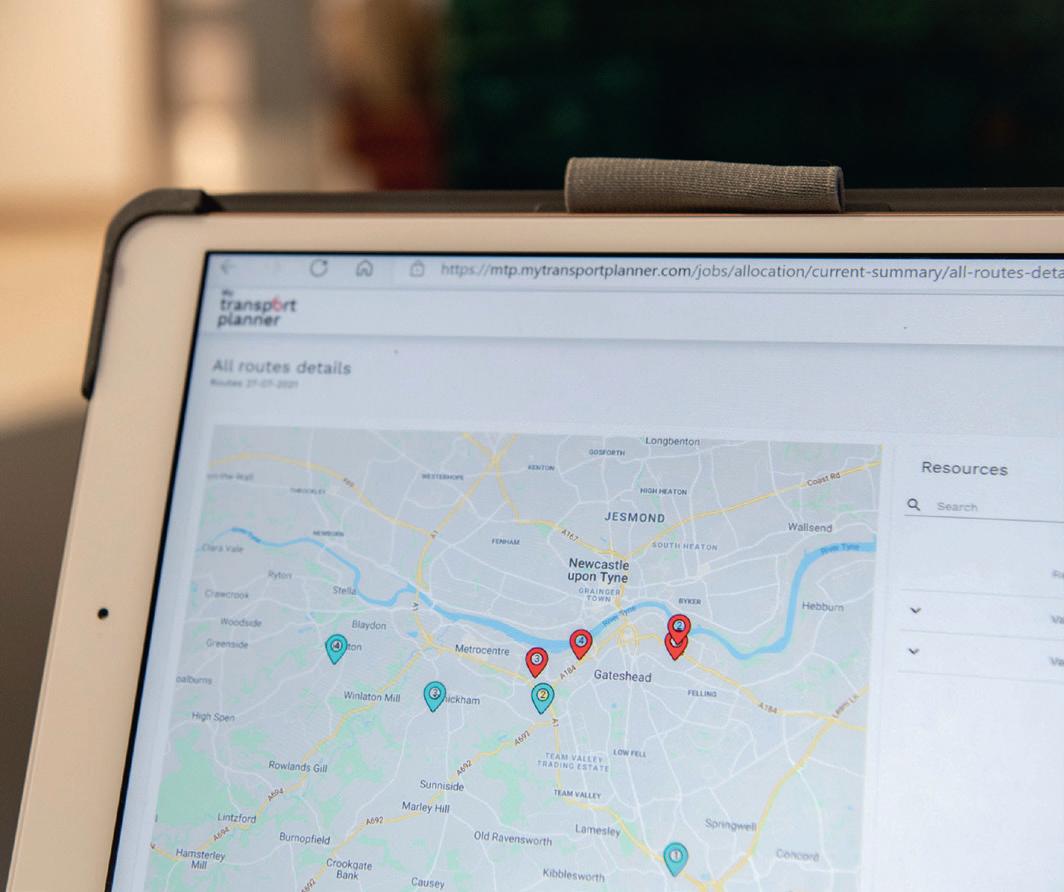
5 minute read
Drink and drugs
from FORS Standard Autumn 2022
by CVMP
SUPPORTING YOUR COLLEAGUES IN THE WORKPLACE Words: David Whiffin
What to do when you suspect that a staff member is abusing drugs or alcohol as a way of coping with life’s problems
In our very first article in this series, we looked at the definition of a ‘coping strategy’ and the use of one in helping to manage a stressful or unpleasant situation. Whilst there are many positive coping strategies, such as going for a walk, talking things through with a friend, etc. it is important to recognise that there are also a number of ‘maladaptive’ coping strategies, the most common of which can involve the use of a psychoactive substance, such as drugs or alcohol.
When difficult life events rear their head, such as divorce, bereavement or financial worries, people often turn to these unhelpful coping mechanisms to manage the anxiety they feel. In the long term this can cause more stress and in some cases shame, and guilt can also exacerbate these feelings.
So, what do we do when faced with the challenge of helping a colleague with such issues?
Addiction does not discriminate When we think about individuals with a dependency or addiction, or even those who simply use/misuse/abuse psychoactive substances, there are several stereotypes that quite often come to mind. As a society, although we often encourage alcohol use in particular and see it as part of our social culture, we generally tend to make negative assumptions around addiction.
Often, those with dependency issues are pictured as unemployed deviants, lurking in dark alleyways or squats, committing crimes to feed their habits and engaging in high-risk behaviour.
It is for this very reason, when FORS Associate OdiliaClark has identified individuals with potential dependency issues, it is sometimes difficult for employers to take them seriously.
After all, some employees will not fit the stereotypical profile of an addict and may still seem to be functioning well on the surface.
The reality is, however, that most psychoactive substance users are just like everyone else. They are parents, siblings, children, friends and colleagues. They hold down normal jobs and have active social lives. In the workplace, it doesn’t matter whether you’re the CEO, middle management, or shop floor worker – dependencies and addictions can affect anyone.
The warning signs While many people who use drugs and/or alcohol as a coping strategy are generally able to function daily, it doesn’t take long for the warning signs of a dependency to creep in. In the workplace, it can be difficult to know how to approach someone without causing anger or adding to the feelings of shame they may feel, so it’s important to be able to recognise the warning signs of someone who may be struggling. Here are several things you may observe: • Changes in behaviour (erratic, mood swings, secretive behaviour etc) • Unkempt appearance (lack of personal care/hygiene, unexplained weight loss/ gain etc) • Reduced productivity / frequent absenteeism • Making mistakes or increasingly missing deadlines • Regularly feeling tired and sleepy or falling asleep at work • Heavy drinking on work nights out/ time away from home • Increased social isolation from friends or colleagues • Financial difficulties
How can I address the issue? It can be difficult, whether as a boss, manager, or colleague, to talk to someone about having a potential issue with psychoactive substances. If you are a colleague, you will also face the challenge of deciding whether the problem needs to be reported to management and/or HR – naturally, if there are any safety concerns whatsoever, then you should do so.
In any event, the discussions you may have with the individual do not need to be levied as an accusation or confrontation. Communication is vital and it is important to convey that you have noticed that they may be struggling, and all you want to do is help and support them. If they decide to share, then allow them to talk without interruption or judgement.
If you choose to talk to a colleague informally, try to pick the right time and place
If you choose to talk to them informally, try to pick the right time and place – find a private, comfortable meeting space to give them the opportunity to feel safe enough to open up and avoid any risk of interruptions. Try to ensure that they are not preoccupied with any other issues, or in the middle of a work task and make sure you turn off computers and put away phones. Most importantly, try to ensure they are sober when you broach the subject.
During the discussion, try to ask open-ended questions in a caring way. To keep the conversation going, use open questions that cannot be answered with a simple yes/no, such as ‘how long have you felt like this?’ or ‘what can I do to help you?’ but try to avoid questions starting with ‘why?’ as they can imply judgement. Perhaps have ready some examples of the behaviour you have noticed to help explain why you believe there to be an issue. No matter their reaction to your approach, try to stay calm and reassure them that they have your support.
Whether they deny or admit to having a problem, encourage them to seek professional health and advice, and to speak confidentially with HR to access appropriate support at work. If you are in a position to help reduce workplace stress, consider making reasonable adjustments such as changes to their workload or time off for psychological support. If workplace conflict with other colleagues or gossip-mongering may be contributing to the problem, do not ignore it. Keep all conversations between you confidential wherever possible and try not to enable the individual’s behaviour – for example, covering for them if they are late or miss deadlines.
Using a compassionate and understanding approach to issues around substance misuse will allow individuals to recognise problems and will make them more likely to seek help. It also demonstrates strong empathic leadership skills, signalling to others in your team that you are someone who can be trusted. This will in turn encourage them to reach out at times of struggle, building a robust and healthy workplace culture in which employees will thrive. ■









